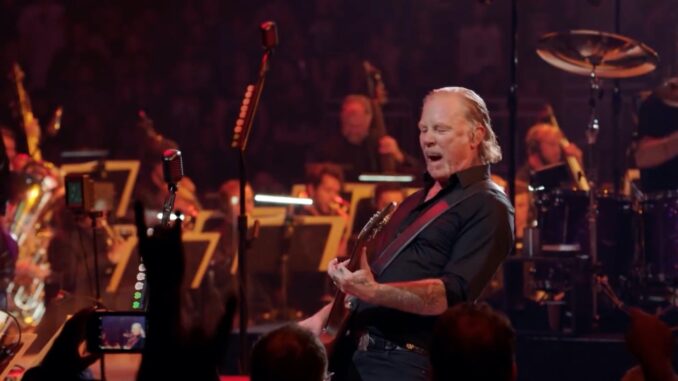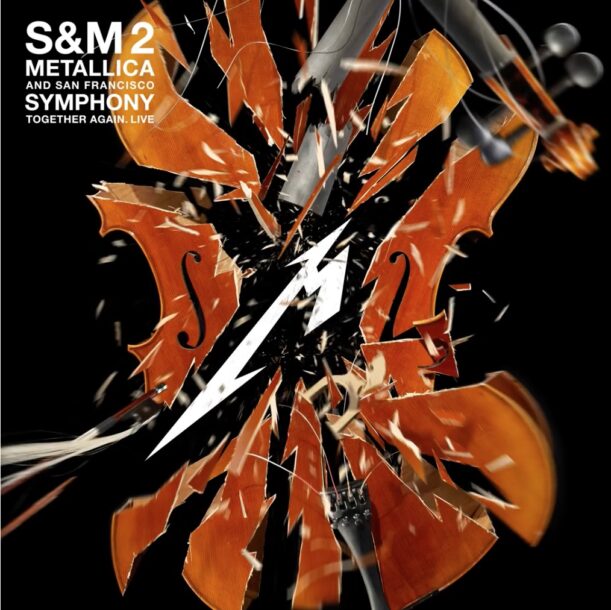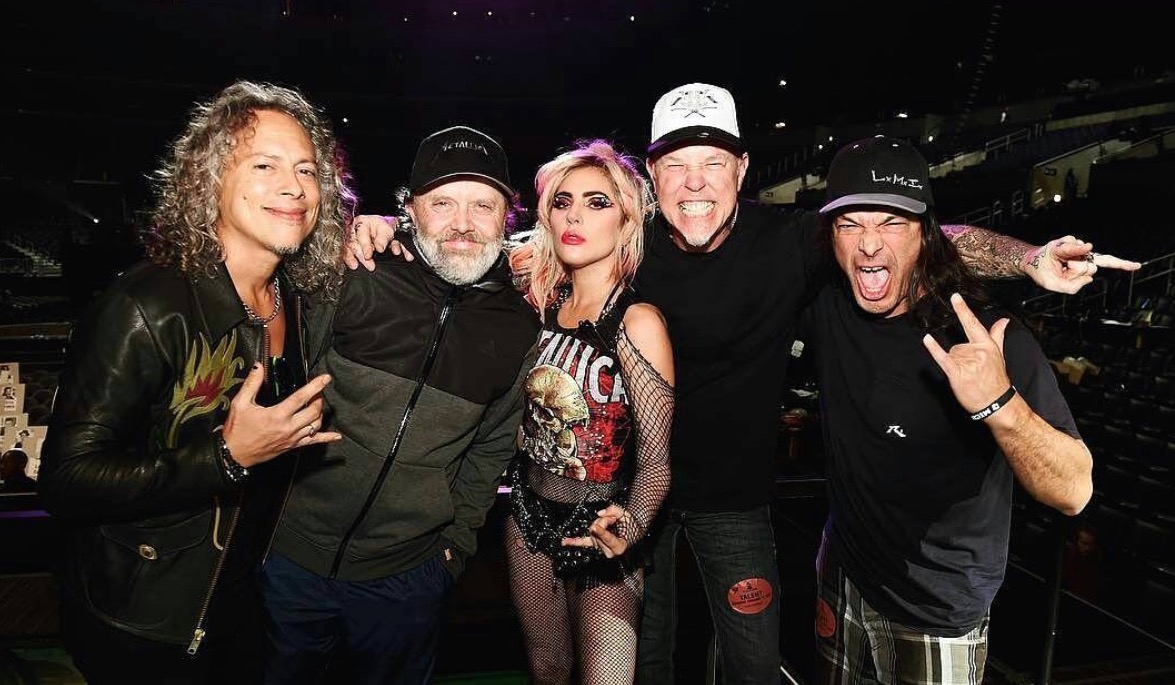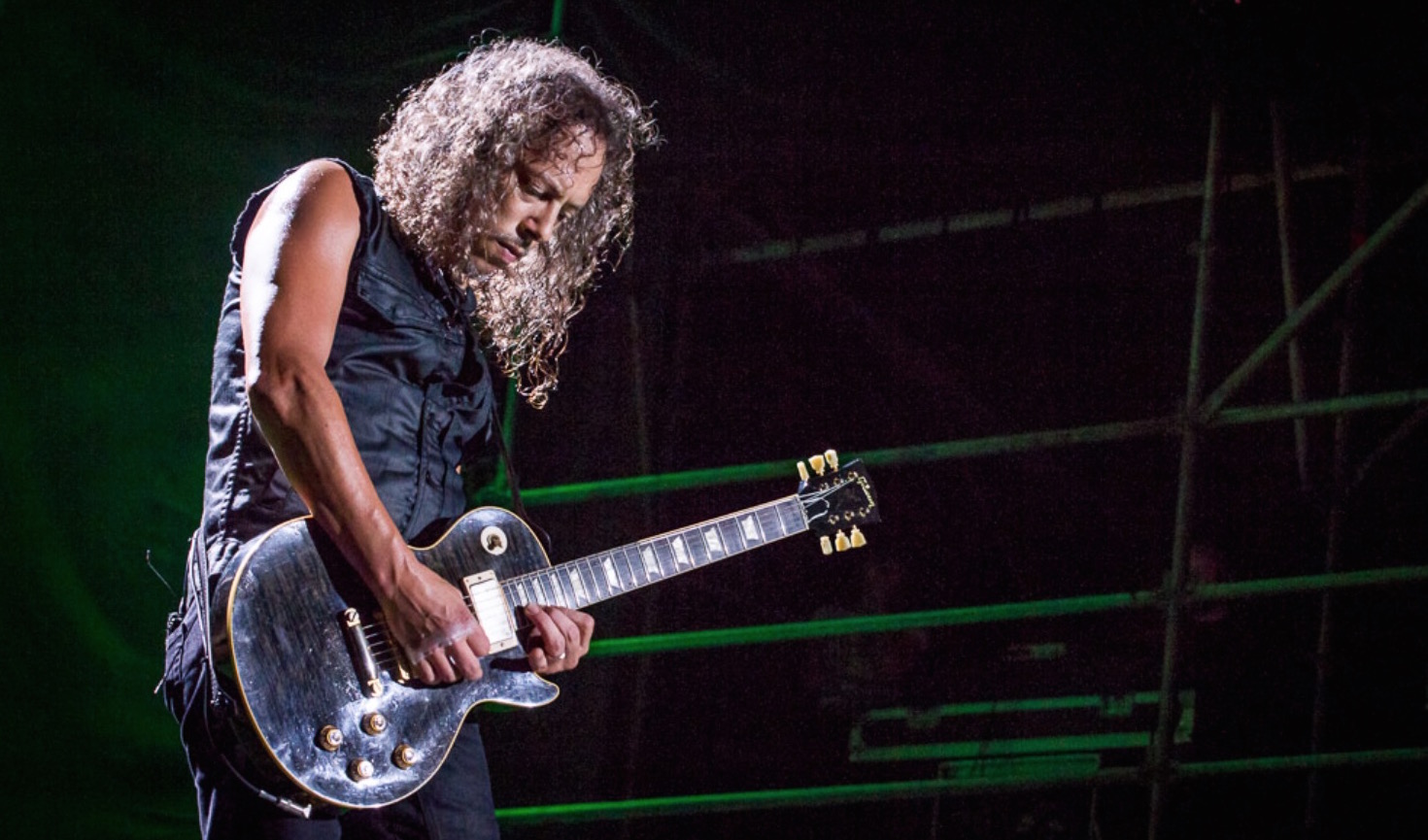
By AVA LIVERSIDGE
Metallica and the San Francisco Symphony have more in common than anyone could ever expect, a truth that challenges our understanding of music as a spectrum, with these two groups on either end. The single night of performance acts independently as an entire rebellion against every critic of raucous heavy metal and every stubborn dismissal of “uncool” classical music.
Metallica, once again, had something to prove: That they aren’t sell-outs, that they’re still art, that they’re still together and functioning. The world awaited the newest demonstration of who they claim to be and who they definitely are not. As a symbol, to the general audience, of the extensiveness of music hype, Metallica seizes this collaboration as an opportunity to be one of the few heavy metal bands to break out of such a ubiquitous role. If paired with the symphony, the epitome of musical mastery, how could they escape comparison to such artistry. Greater than the initial shock of such a pairing or the near mockery behind it, the musicians ultimately become the most artificial and natural duo in music history.
Premiering in 1999, the coupling was welcomed timidly – the prying eyes and sheer curiosity did not mask the skepticism from fans worried about Metallica’s history of selling-out and the surface-level quirk of such a combination. The 2020 revival only further reinforces Metallica’s place in this collaboration that strays from vapid screaming while maintaining the certain fervor and passion that often identifies the band. The sight itself is completely overwhelming- hundreds of professional musicians playing the very symphonies that everyone’s parents seem to hate.

After these performances, listening to a Metallica song without an ensemble of classically trained musicians feels bland, sober – adjectives rarely used, even in criticism, to describe their histrionic music. This duo will make the most dedicated fans never want to hear a Metallica song without violins or cello again. The effectiveness of Metallica’s general tension, built by hearty, virtuosic electric guitar and quivering symbols, is heightened to the nth degree – this album has a general feeling of a more demented, dark Middle Earth adventure with far more lurking monsters than your average journey. Hetfield’s signature throaty growl pairs perfectly with a symphony of high tension; the kind of goosebump-inducing suspense. On the opening track, “Ecstasy of Gold,” the duo creates a sound that would make Longinus proud- the tones, the journey, and the unbearable intensity that embody the word sublime. These moments of moving musical ingenuity continue throughout the night with soulful tracks like “One” and, of course, a highly-anticipated “Nothing Else Matters.”
Surprisingly, this is not a a compromising body of work-neither groups hold back on displaying the musical expression they are known for. The trill of bells and violin solos bridge into bombastic Ulrich drumming- all parties are represented in full. This is a manifesto and a defiance of all the strictures and structures the world has imposed upon the music industry. Better yet, this is the album to play the whining aficionados who don’t see the artistic value in zealous melodies and thunderous rhythms or imposter anarchists who couldn’t sit through a night at the symphony.



